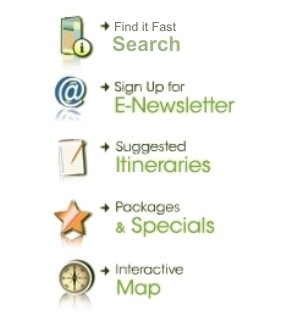
|
In General:
- purchase RV insurance
- check the stove, fridge, furnace for overall condition and gas leaks (expensive to repair and potentially dangerous if defective)
- check the gas valve at the front of the RV to ensure it doesn't leak, and allows you to switch from one tank to the other automatically (when empty and for refills), if not, replace it.
- install a gas and smoke detector. Keep a fire extinguisher on hand.
Sewer:
- use screens on drains to catch food particles before they clog gray-water pipes
- leave gray-water dump value open
- always leave black-water dump valve closed, except to dump into sewer connection, to prevent blockages (and flies)
- there is a product sold in Canadian Tire and RV stores which is a chemical packet you put down the toilet after you have emptied the holding tank, that will help keep the holding tank fresh and working well.
- use ONLY single ply RV toilet paper, in the toilet, and do not flush anything else down the toilet.
Awnings:

|
- never leave the awning up during long unattended periods (or tip it down if necessary)
- never leave the awning up during risk of severe rain, wind or snowy weather (or tip it down if necessary)
- secure the outer corners of the awning to a stake in the ground or other immovable object (tree) to increase strength during windy conditions (tie downs)
- angle the awning (and test with a hose) so that rain water easy rolls off and never accumulates, otherwise, after every severe storm, it seems there is always a few 'awning casualties' as shown in this picture
|
Leaks:
- the integrity of your RV (and your investment) is in the roof. Ensure you inspect it, and repair/maintain it as necessary. Add a coat of RV roof sealant every few years.
- inspect the ceiling vents, and if necessary, install Max-air vent covers, so vents may be left open in any weather. Close vents when away for extended periods.
Power:
- inspect your fuse box, ensure you have replacement breakers on hand for your unit.
- ensure you do not overload your circuits. Try to balance your higher load appliances (microwave, electric heater, toaster, coffee maker etc) placement and time of use.
Hot Water:
- don't use the water heater when the tank is empty.
- realize you only have a limited quantity of water for washing, showers etc, so plan accordingly, and give it time between uses to re-heat.
- hot water is produced very quickly, so you don't normally have to keep the heater lit. Plan ahead. (same for the furnace or air conditioner, turn them off during extended absence).
- wind can blow out the pilot light. If it is out, re-light it. If the problem persists, put something at least a metre away from the RV to block the wind.
Winterize:
- follow the instruction for your RV-type. In general bleed all water lines. Put an air compressor on the water line outside and open the taps and toilet until empty. Also turn off and open the hot water tank drain valve. You should be fine for winter now, however, some people prefer to put RV anti-freeze into their water lines just to be sure. If you do, ensure you choose the non-toxic variety.
- Empty your holding tanks, and put RV antifreeze down the kitchen and bathroom drains to keep water in the traps from freezing.
- If you have any liquids in the RV, take them back to town for storage.
- To discourage rodents, put down Bounce Sheets, cloves and bay leaves (in little containers), apparently mice will want to keep away.
- Turn off your propane tanks.
How to extend your season:
- Once the RV park water is turned off, most campers consider the season over. However, gas and power are still working, so if you bring some drinking water, you can certainly come up for the day until freezing temperatures occur (same thing for in the Spring). If there is snow on the roof, best not to heat the RV, as it may cause melting, and problems with roof seals when it refreezes.
- Just put some RV antifreeze down the toilet as well, to keep liquids from freezing and becoming a problem during the winter. And if you put water down your drains, remember to put RV antifreeze again into the traps.
|
|
 |









